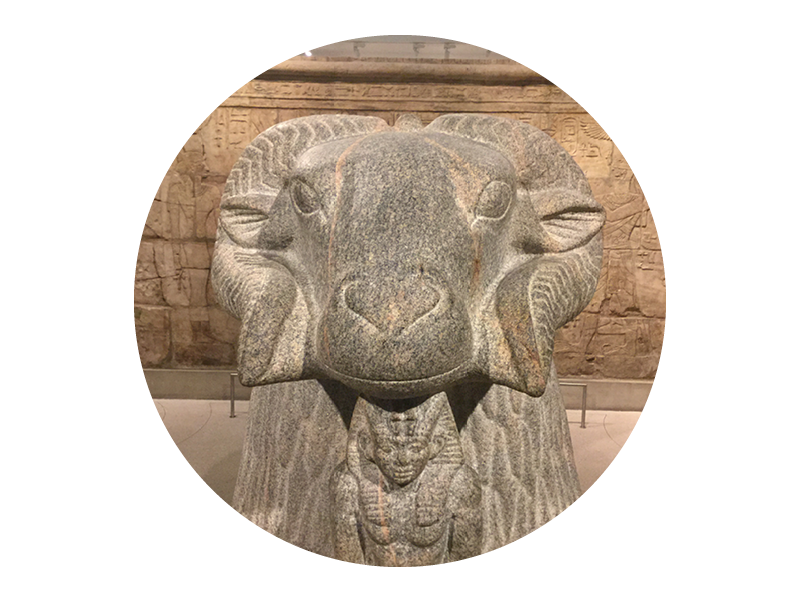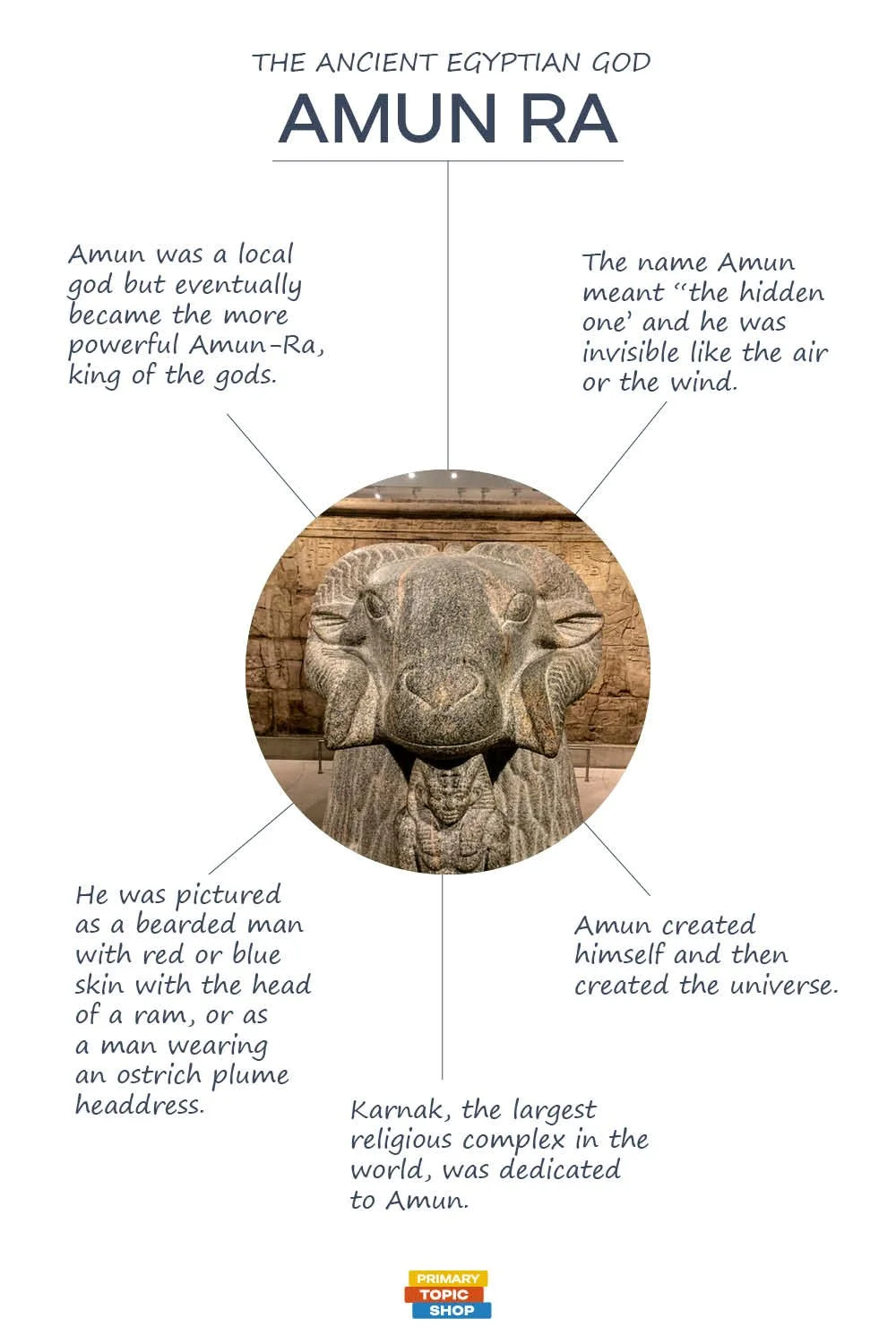Five Facts About Amun Ra - Ancient Egyptian God of Air, Wind and Sun
Egyptian God of Air, Wind and Sun
Amun-Ra was pictured as a bearded man with red or blue skin with the head of a ram, or as a man wearing an ostrich plume headdress
Photo by Christa Galloway
Amun was a local god but eventually became the more powerful Amun-Ra, king of the gods.
Amun was a local god of Thebes, but when the capital was moved to Thebes, he became a national god. Eventually, he was combined with the sun god Ra and became the more powerful Amun-Ra, king of the gods.
The name Amun meant “the hidden one’ and he was invisible like the air or the wind.
The name Amun meant "the hidden one'. He represented all the mysterious things in the universe and he was invisible like the air or the wind. When he merged with Ra, he became both visible and invisible.
Amun created himself and then created the universe.
According to Ancient Egyptian mythology, Amun created the universe (including himself).
Karnak, the largest religious complex in the world, was dedicated to Amun.
The Temple of Karnak in Thebes was dedicated to Amun, with temples dedicated to Amun’s wife, Mut and Amun’s son, Khonsu. At its peak, Karnak was the most important temple in Egypt and is still the largest religious complex in the world.
He was pictured as a bearded man with red or blue skin with the head of a ram, or as a man wearing an ostrich plume headdress.



